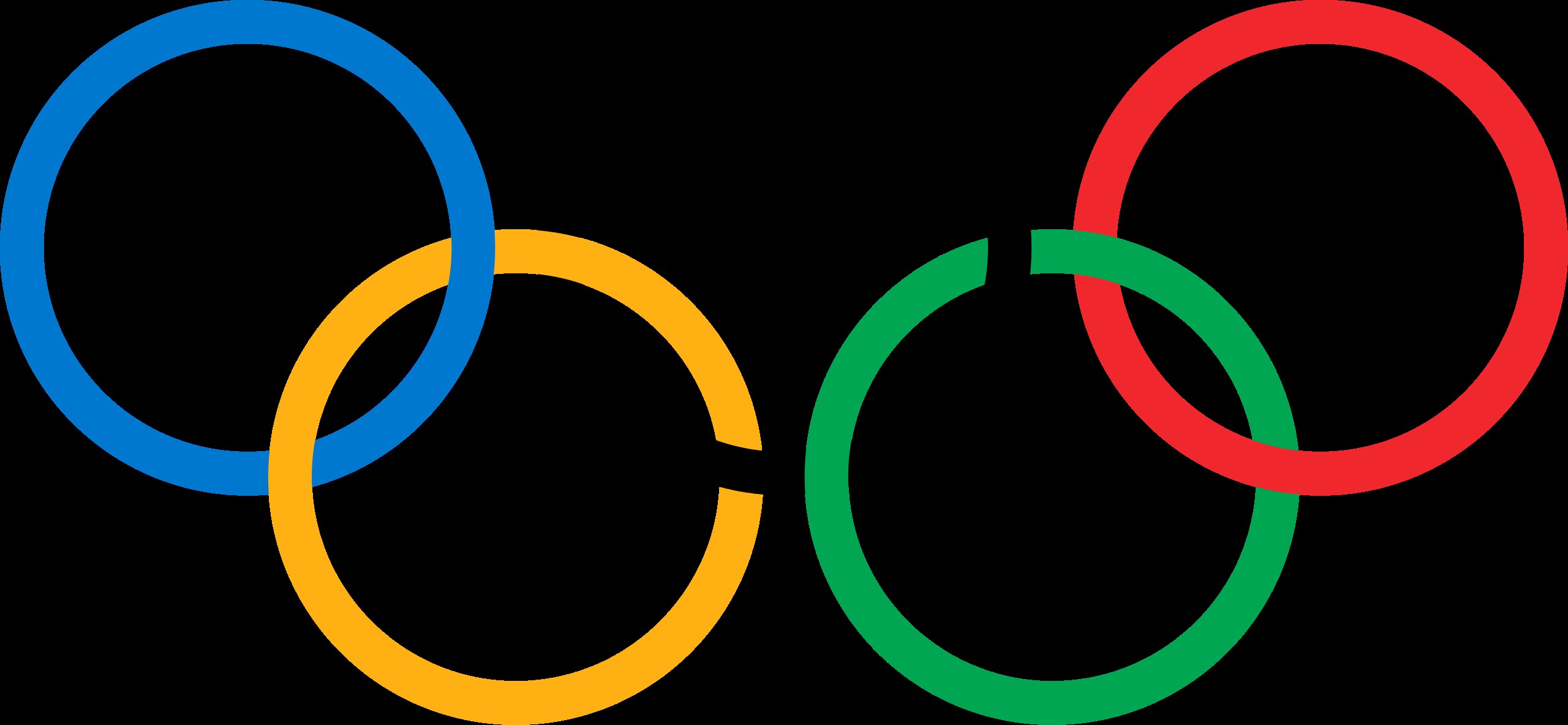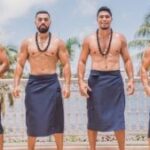Why Is Russia Not In The Olympics? This is a complex question that delves into the intersection of sports, politics, and international relations. At WHY.EDU.VN, we unravel the multifaceted reasons behind Russia’s absence, exploring the controversies, sanctions, and ethical considerations that have led to this situation. This comprehensive examination sheds light on the broader implications for the Olympic movement and global sports governance, providing insightful knowledge and critical analysis. Discover detailed explanations and expert perspectives on the expulsion, neutrality debates, and governance challenges within international sports organizations, ensuring a thorough understanding of the subject.
1. The Initial Exclusion: Invasion of Ukraine
Russia’s exclusion from the 2024 Summer Olympics stems primarily from its invasion of Ukraine in 2022. This act of aggression, a blatant violation of international law, prompted swift and decisive action from the International Olympic Committee (IOC). The IOC, committed to upholding the Olympic Truce and promoting peace through sports, condemned Russia’s actions as a direct affront to the Olympic spirit.
1.1. Violation of the Olympic Truce
The Olympic Truce, a tradition dating back to ancient Greece, calls for a cessation of hostilities during the Olympic Games and the period immediately before and after. It serves as a symbolic gesture towards peace and promotes the idea that sports can foster understanding and cooperation between nations. Russia’s invasion of Ukraine, occurring shortly after the conclusion of the Beijing Winter Games in February 2022, was a clear violation of this truce.
The IOC wasted no time in condemning Russia’s actions and invoking sanctions. While some might argue that the timing of the invasion—a few days after the Olympics—should not be a determining factor, the IOC used this violation as a specific justification for its response, allowing it to focus solely on Russia without addressing broader conflicts involving other nations.
1.2. Russia’s History of Doping Scandals
Adding to the severity of the situation was Russia’s history of doping scandals. For years, Russia had been under scrutiny for state-sponsored doping programs, which involved systematic cheating and manipulation of drug tests. These scandals had already led to sanctions, including restrictions on Russia’s participation in previous Olympic Games. The invasion of Ukraine, combined with this history of misconduct, created a perfect storm that resulted in Russia’s exclusion.
2. IOC’s Response: Sanctions and Suspension
The IOC responded to Russia’s actions with a series of sanctions and suspensions. These measures were aimed at holding Russia accountable for its violations of the Olympic Truce and its history of doping.
2.1. Suspension of the Russian Olympic Committee (ROC)
In October 2023, the IOC suspended the Russian Olympic Committee (ROC) with immediate effect. This decision was prompted by Russia’s annexation of Ukrainian Olympic federations in Russian-occupied territories. The IOC viewed this as a direct violation of its principles and a challenge to its authority.
The suspension of the ROC meant that it was no longer recognized as a legitimate member of the Olympic movement. It lost its rights and privileges, including the ability to participate in IOC meetings and events. This was a significant blow to Russia’s standing in the world of sports.
2.2. Allowing “Neutral” Athletes to Compete
Despite the suspension of the ROC, the IOC made provisions for individual Russian athletes to compete in the Olympics under a neutral flag. These athletes, known as “Individual Neutral Athletes” (AINs), had to meet strict eligibility criteria, including a clean doping record and no association with the Russian military or security agencies.
This decision was controversial, with some arguing that it allowed Russia to circumvent the sanctions and maintain a presence at the Olympics. Others defended it as a way to protect the rights of individual athletes who were not complicit in the actions of their government.
3. The “What About Israel” Argument
The decision to exclude Russia from the Olympics sparked a debate about consistency and fairness. Some critics raised the “what about Israel” argument, questioning why Russia was being punished for its actions in Ukraine while Israel was not being sanctioned for its conflict in Gaza.
3.1. IOC’s Stance on Political Neutrality
IOC President Thomas Bach addressed this issue, emphasizing the importance of maintaining political neutrality. He argued that the IOC should not become a judge of international disputes and the worthiness of various regimes to participate in the Games. Bach noted that if the IOC were to exclude nations based on their involvement in conflicts, the number of participating countries would be significantly reduced.
3.2. Distinguishing Between Conflicts
Bach also distinguished between the situation in Ukraine and the conflict in Gaza. He pointed out that the Palestinian and Israeli Olympic committees coexist peacefully, whereas Russia’s actions were a direct transgression against the Olympic movement itself.
While the “what about Israel” argument raises valid questions about consistency, the IOC has maintained that Russia’s actions were unique in their direct violation of the Olympic Truce and the principles of the Olympic movement.
4. Governance Challenges in International Sports
The situation with Russia highlights the broader governance challenges facing international sports organizations. These organizations must balance inclusivity with ethical standards, navigate complex political landscapes, and ensure fair and consistent application of their rules.
4.1. Privilege or Right?
One fundamental question is whether participating in the Olympics or World Cup is a privilege or a right. The Olympic Charter emphasizes that the Games are about individual athletes, not nations. However, the intense focus on national medal counts, flags, and anthems suggests otherwise.
If participation is a privilege, then it can be revoked when nations violate the principles of the Olympic movement. If it is a right, then it should only be restricted in the most extreme cases.
4.2. Athletes or Nations?
The IOC insists that the Olympics are about athletes, not countries. This is reflected in the presence of a delegation of stateless refugees and “neutral” Russian athletes at the Games. However, the reality is that the Olympics are often viewed as a competition between nations.
This tension between individual athletes and national representation creates challenges for the IOC in its efforts to balance inclusivity with ethical standards.
4.3. Whose Values Should International Sports Governing Bodies Reflect?
International sports governing bodies face the challenge of reflecting a diverse range of values. Balancing inclusivity with ethical standards is difficult, as increasing inclusivity can sometimes weaken a focus on human rights and democracy.
This is a conundrum faced by all multilateral governance institutions, including the United Nations. These institutions often reflect the lowest common denominator adherence to the rule of law among their members.
5. The Impact on Russia and the Olympic Movement
Russia’s exclusion from the Olympics has had a significant impact on both the country and the Olympic movement.
5.1. Loss of Prestige and Influence
For Russia, the exclusion represents a loss of prestige and influence on the global stage. Sports have long been used as a tool for nation-building and projecting soft power. Russia’s absence from the Olympics diminishes its ability to showcase its prowess and gain influence over global sports organizations.
5.2. Impact on Russian Athletes
The exclusion has also had a devastating impact on Russian athletes, many of whom have dedicated their lives to training for the Olympics. While some are able to compete as neutral athletes, others are barred from participation due to their association with the Russian military or security agencies.
5.3. Implications for the Olympic Movement
The situation has raised questions about the future of the Olympic movement. Some fear that the exclusion of Russia could set a precedent for future political boycotts and undermine the universality of the Games. Others argue that it is necessary to uphold ethical standards and protect the integrity of the Olympic movement.
 Olympic Rings
Olympic Rings
6. Historical Precedents: Apartheid South Africa
While the IOC strives for inclusivity, historical precedents demonstrate that exclusion is sometimes necessary. The longstanding exclusion of South Africa during apartheid from international sporting competition is a prime example.
6.1. Justifiable and Effective Decision
The exclusion of South Africa was widely viewed as a justifiable and effective decision. It sent a strong message that apartheid was unacceptable and put pressure on the South African government to end its discriminatory policies.
6.2. Balancing Inclusion with Ethical Considerations
The South Africa case highlights the importance of balancing inclusion with ethical considerations in extreme cases. While the IOC generally prioritizes broad participation, there are times when it must take a stand against egregious violations of human rights.
7. Russia’s Response and Future Prospects
Russia has consistently condemned the sanctions and maintains that they are politically motivated. The country has accused the IOC of discrimination and has vowed to fight for the rights of its athletes.
7.1. Legal Challenges
Russia has pursued legal challenges to the sanctions, arguing that they are unfair and violate the principles of natural justice. However, these challenges have largely been unsuccessful.
7.2. Potential Reintegration
The future of Russia’s participation in the Olympics remains uncertain. The IOC has indicated that it will consider lifting the sanctions once Russia has fully complied with its requirements, including respecting the territorial integrity of Ukraine and addressing its doping issues.
7.3. Shifting Geopolitical Landscape
The shifting geopolitical landscape will also play a role in determining Russia’s future in the Olympic movement. As international relations evolve, the IOC will need to navigate complex political dynamics while upholding its commitment to ethical standards and the principles of the Olympic Charter.
8. Alternative Perspectives on the Ban
While the IOC’s decision to exclude Russia has been widely supported, some argue that it is counterproductive and undermines the spirit of the Olympics.
8.1. Punishing Athletes for Government Actions
Critics argue that the ban punishes athletes for the actions of their government, which is unfair and unjust. They contend that athletes should not be held responsible for political decisions over which they have no control.
8.2. Undermining Universality
Some fear that the exclusion of Russia undermines the universality of the Olympics and sets a dangerous precedent for future political boycotts. They argue that the Olympics should be a forum for bringing nations together, regardless of their political differences.
8.3. Effectiveness of Sanctions
Others question the effectiveness of sports sanctions in achieving political goals. They argue that sanctions often hurt ordinary citizens more than they hurt the government and that they can even backfire by galvanizing support for the regime.
9. The Role of Sports in International Relations
The Russia case highlights the complex role of sports in international relations. Sports can be a powerful tool for promoting peace and understanding, but they can also be used for political purposes.
9.1. Soft Power
Sports are often used as a form of soft power, allowing nations to project a positive image and gain influence on the global stage. Hosting major sporting events like the Olympics or World Cup can enhance a country’s prestige and attract tourists and investment.
9.2. Political Symbolism
Sports can also be used to make political statements. Boycotts, protests, and other forms of political expression have long been a part of the sporting world.
9.3. Balancing Politics and Sports
Navigating the intersection of politics and sports is a challenge for international sports organizations. They must balance their commitment to neutrality with their responsibility to uphold ethical standards and promote peace and understanding.
10. The Future of the Olympic Movement
The Russia case has raised fundamental questions about the future of the Olympic movement. As the world becomes more interconnected and politically polarized, the IOC will need to adapt to new challenges and ensure that the Olympics remain a force for good.
10.1. Strengthening Governance
One key priority is strengthening governance within international sports organizations. This includes increasing transparency, accountability, and independence.
10.2. Upholding Ethical Standards
The IOC must also reaffirm its commitment to upholding ethical standards, including fighting doping, corruption, and discrimination.
10.3. Promoting Peace and Understanding
Ultimately, the Olympic movement must remain true to its founding principles of promoting peace and understanding through sports. This requires fostering dialogue, building bridges, and creating opportunities for athletes from all nations to compete together in a spirit of friendship and respect.
In conclusion, Russia’s absence from the Olympics is a complex issue with far-reaching implications. It highlights the challenges of balancing inclusivity with ethical standards, navigating political complexities, and upholding the principles of the Olympic movement. As the world continues to evolve, the IOC must adapt to new challenges and ensure that the Olympics remain a force for good.
Navigating the intricate landscape of international sports and political dynamics can be challenging. At WHY.EDU.VN, we understand the need for clear, reliable, and expert-driven answers. We provide a platform where curiosity meets knowledge, offering comprehensive insights into complex topics like Russia’s Olympic exclusion.
FAQ: Frequently Asked Questions About Russia and the Olympics
1. Why was Russia initially banned from the Olympics?
Russia was initially banned due to its state-sponsored doping program and subsequent cover-ups.
2. What is the Olympic Truce, and how did Russia violate it?
The Olympic Truce calls for a cessation of hostilities during the Games; Russia violated it by invading Ukraine shortly after the 2022 Winter Olympics.
3. Can Russian athletes still compete in the Olympics?
Yes, individual Russian athletes who meet specific criteria, such as a clean doping record, can compete under a neutral flag.
4. What is the “what about Israel” argument, and how does the IOC respond?
This argument questions why Russia is sanctioned while Israel isn’t; the IOC emphasizes political neutrality and distinguishes between conflicts.
5. What are the main governance challenges facing international sports organizations?
Balancing inclusivity with ethical standards, navigating political landscapes, and ensuring fair application of rules.
6. How does Russia view its exclusion from the Olympics?
Russia condemns the sanctions, viewing them as politically motivated and discriminatory.
7. What is the significance of the South Africa apartheid example?
It demonstrates that exclusion is sometimes necessary to uphold ethical standards against egregious human rights violations.
8. What are the alternative perspectives on the ban of Russia?
Some argue it punishes athletes unfairly, undermines universality, and questions the effectiveness of sanctions.
9. What role does sports play in international relations?
Sports can be a tool for soft power, political symbolism, and promoting peace, but requires a balance between politics and sports.
10. What is the future of Russia’s participation in the Olympics?
Uncertain, dependent on Russia complying with IOC requirements and the evolving geopolitical landscape.
Have more questions or need deeper insights? Visit WHY.EDU.VN today and ask our experts. We’re dedicated to providing you with the answers you seek, backed by expertise and accuracy.
Address: 101 Curiosity Lane, Answer Town, CA 90210, United States
Whatsapp: +1 (213) 555-0101
Website: why.edu.vn

